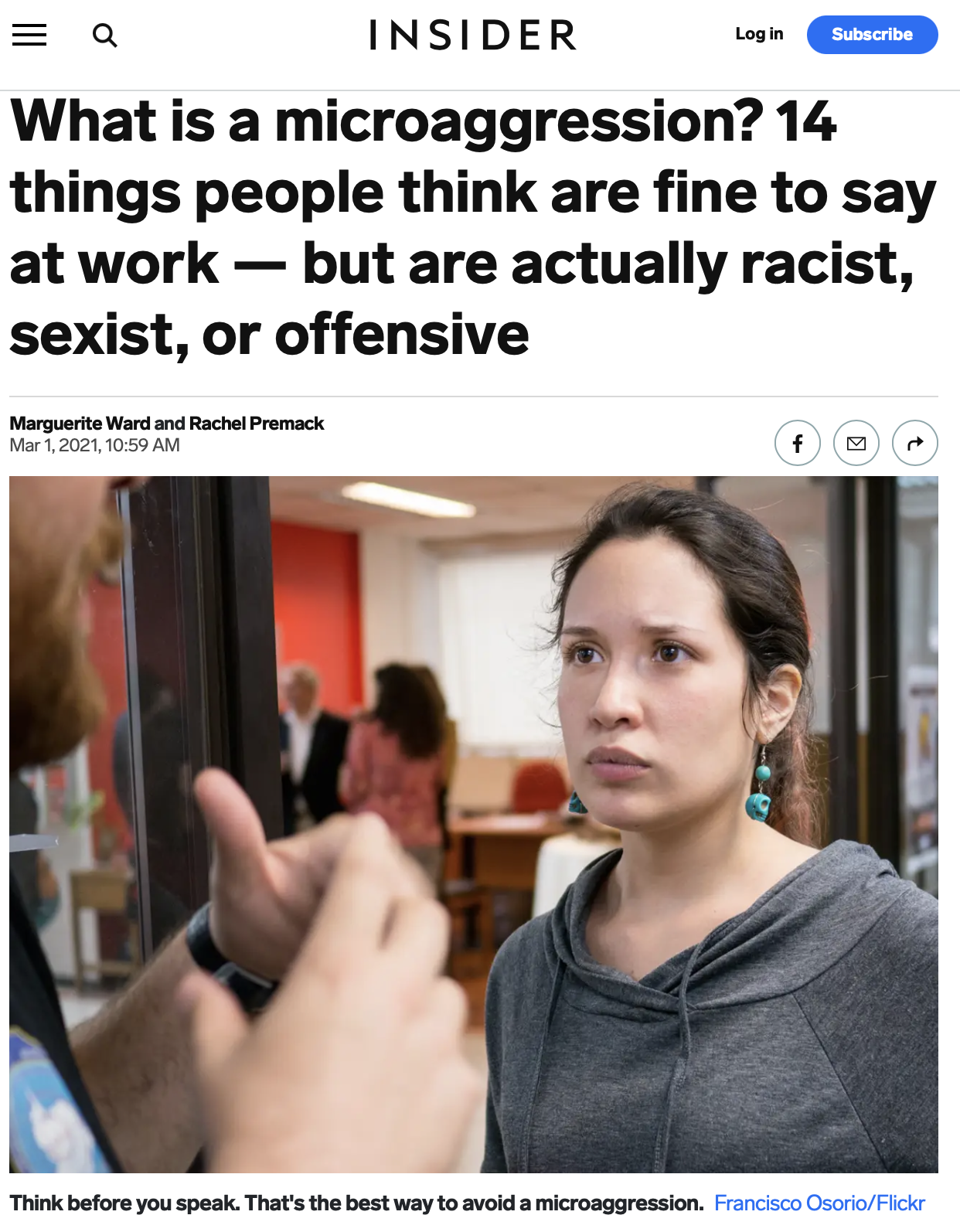14 things people think are fine to say at work — but are actually racist, sexist, or offensive

A recent article at Business Insider uses recent news from Salesforce to highlight the microaggressions that so many American workers face everyday. “In less than one more, two employees have publicly resigned from Salesforce, citing discrimination and a culture of microaggressions at the company.”
Research shows that a majority of American workers have seen or experienced unintentional expressions or racism, sexism, ableism, ageism, and so many other “isms”. There are many studies that show that most people do not speak up. Why?
Well, there can be many reasons. As we discuss in our course, Disarming Microaggressions, there are a variety of reasons for not speaking up: people don’t want to rock the boat or make the situation worse; they’re afraid of retaliation; confused what was really said; and the most common reason, people don’t know what to say.
This is why Disarming Microaggressions (link to product page) teaches real skills, things each of us can actually say or do to counter a microaggression in the moment or afterwards, without shame or blame. Also, Dr. Sue teaches that the most important thing is to take care of yourself. There may be times when its best not to speak up.
A 2019 survey by Glassdoor of 1,100 US employees found that 61% of US employees had witnessed or experienced workplace discrimination based on age, race, gender, or LGBTQ identity.
In the article, here’s the list of 14 things people say that are actually racist, sexist or offensive. Some of these are microaggressions.
1. ‘You’re so articulate’
2. ‘You’re transgender? Wow, you don’t look like it at all’
3. ‘Oh, sorry, wrong person’
4. ‘Oh, you’re gay? You should meet my friend Ann. She’s gay, too!’
5. ‘My boss is crazy’
6. ‘Where are you actually from?’
7. ‘The way you’ve overcome your disability is so inspiring’
8. ‘Your name is so hard to pronounce’
9. ‘I think you’re in the wrong room — this is the programmers’ meeting’
10. ‘Do you even know what Snapchat is?’
11. ‘Are you an intern? You look so young!’
12. ‘Is that your real hair?’
13. (Interrupting) ‘Well, actually, I think…’
14. ‘Why do you wear that?’
It’s important to understand that each of these comments can sound innocent or even like a good question or compliment. The key is to identify the hidden message and the impact. Dr. Sue teaches strategies of how to directly counter the hidden message and interrupt the microaggressions. In the article, the authors list things you can say. This is an excellent resource and can be useful to prepare in advance for things you hear often. We’ll have much more to say about microaggressions in a subsequent blog. For now, take the Test Drive and learn all about hidden messages in the e-Learning course
Read the Whole Article >

